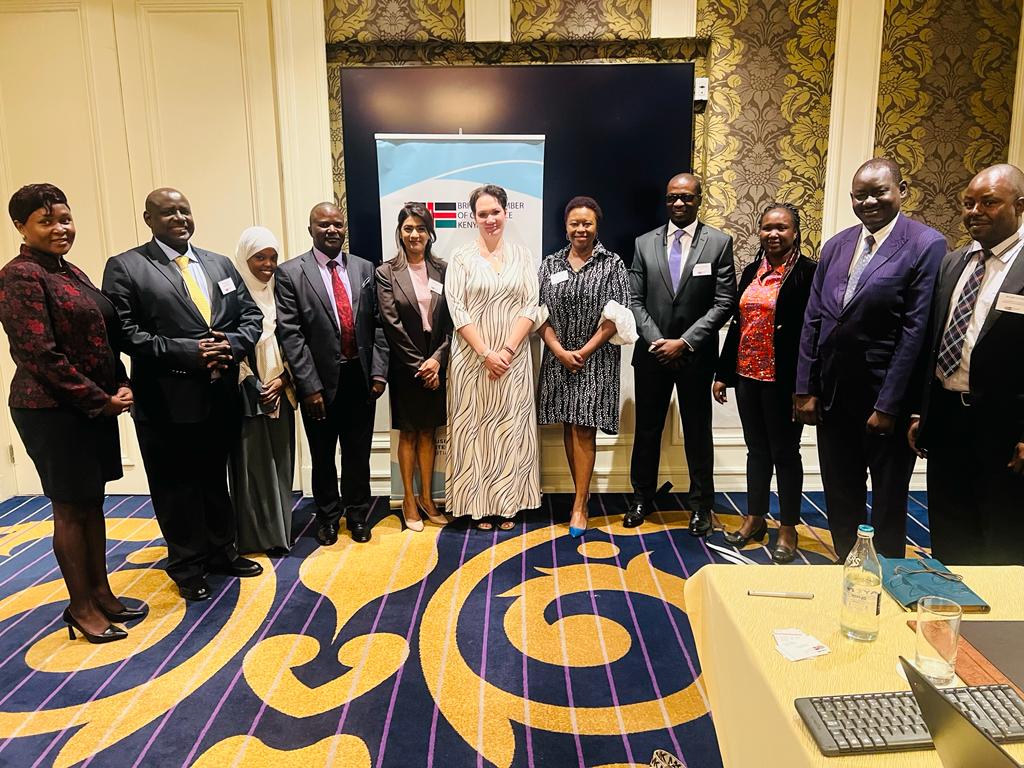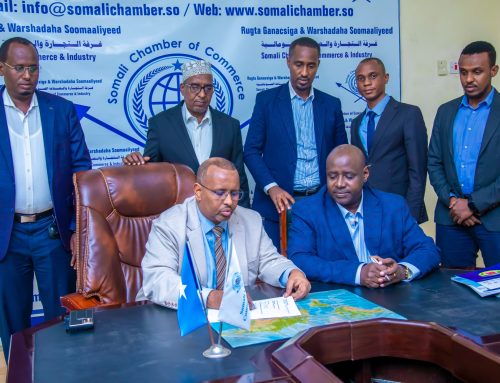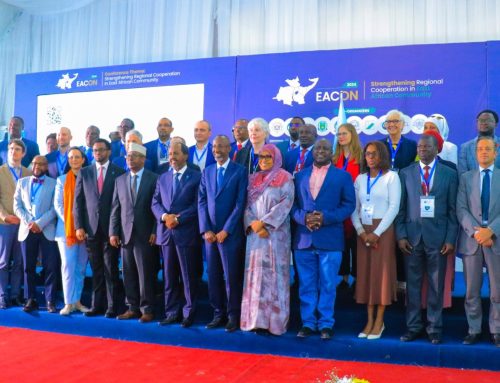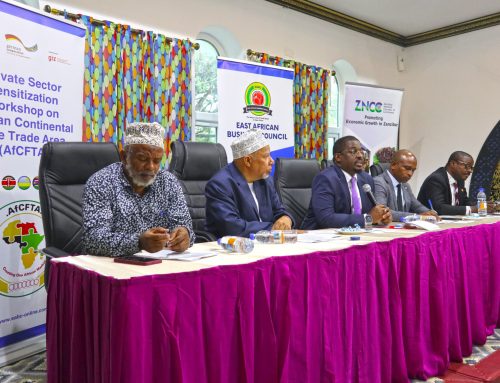24th August 2023, Mr. Kalisa participated in the Business and Investment Climate Reform Roundtable organized by the British Chamber of Commerce Kenya, in collaboration with the State Department for Investments Promotion (SDIP) of Kenya, at Villa Kempinski Hotel in Westlands, Nairobi, Kenya.
This Business and Investment Climate Reform Roundtable was attended by various CEOs of Chambers of Commerce, including the East African Business Council (EABC), Kenya Private Sector Alliance (KEPSA), American Chamber of Commerce, British Chamber of Commerce, Kenya National Chamber of Commerce, Portuguese Business Council in Kenya, and others.
The discussion aimed to review whether the cross-cutting issues previously raised by the private sector regarding the 2023 Finance Act had been addressed, and private sector submissions were to be presented to the government. These submissions outlined obstacles to business and further investments in Kenya, both from within the EAC borders and globally. These submissions were intended to be addressed through the Business Laws (Amendment) Bill 2023.
During his presentation, Mr. Kalisa emphasized that harmonization of customs and domestic taxes, as well as standards and technical regulations within the EAC, are among the key priorities outlined in the EABC Policy Agenda 2023/24. He further urged that the cross-cutting issues under discussion should include the African Continental Free Trade Area (AfCFTA), particularly the Guided Trade Initiative, as Kenya is among the selected Champions for this initiative. He also highlighted the need for improvements in transportation and logistics, especially at the Port of Mombasa, to enhance cross-border trade. Mr. Kalisa advocated for supporting SMEs in digitalization and promoting regional value chains in areas such as textiles, edible oil, and pharmaceuticals.
Additionally, he stressed that as the EAC region recovers from multiple global shocks and works towards improving competitiveness in trade and investment, it is crucial to create a conducive business environment. He pointed out specific issues that need attention, including VAT refunds, harmonization of customs and domestic taxes, access to finance, public procurement for SMEs, and addressing illicit trade, as Kenya is experiencing significant losses exceeding 6 billion USD related to illicit trade.
According to a study conducted by the British Chamber of Commerce in Kenya, over 49% of the private sector in Kenya faces challenges related to taxes, payments, and duties. Other challenges include public procurement (34%), increased levels of corruption, issues related to illicit trade and intellectual property, and land acquisition and property rights.
The most effective approaches to address these challenges include internal capacity building, engagement with business chambers and associations, problem-solving through peer and informal networking, integrity initiatives, and advocacy platforms.
Recommendations from the Roundtable included:
- The government should enhance incentives for compliance.
- Investment in iTax modules to facilitate access, particularly for SMEs.
- Harmonization of standards and streamlining of border points in the EAC.
- Acceleration of the full implementation of the Integrated Customs Management System.
- Publishing annual performance reports to raise awareness among citizens.
Other areas of discussion encompassed:
- Digital tax and capital gains tax.
- Uncertainty regarding tax ratings.
- The energy sector.
- Data protection.
- Issues related to counterfeit and contraband.
- Excise tax and import duties.





